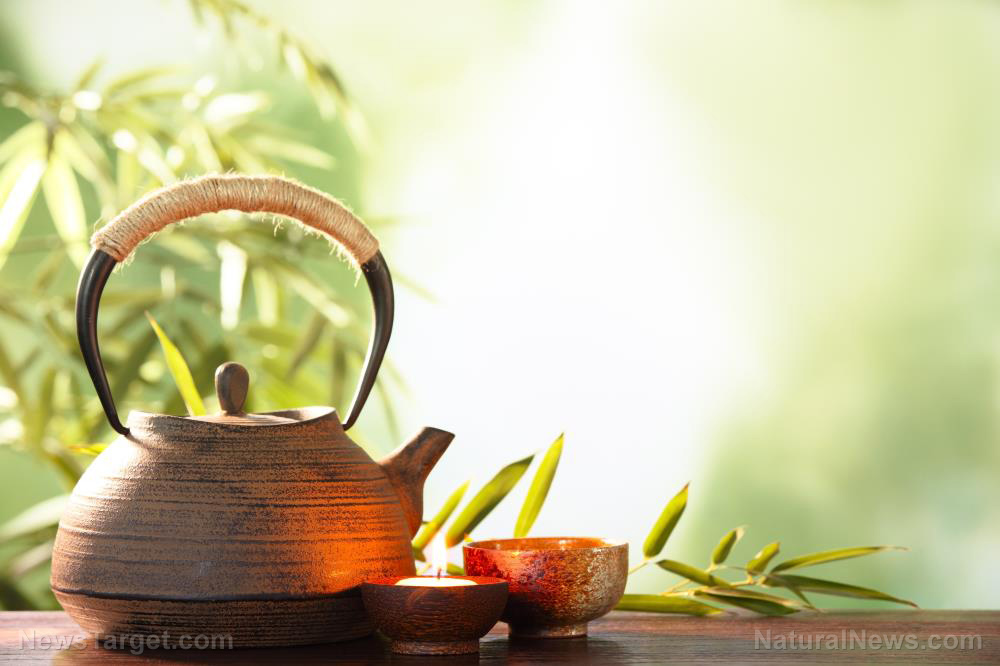What are the best teas for sleep?
03/08/2019 / By Mary Miller

Herbal teas rank among the healthiest and most popular beverages in the world. As such, it should come as no surprise that they have been used as natural remedies for centuries by people all across the globe. Herbal teas can offer countless health benefits to regular tea drinkers. One such health benefit is the promotion of restful sleep and relaxation. Here are the best herbal teas that you can use as natural sleep aids.
Chamomile tea
Chamomile tea is such a potent sleep aid that it has a reputation for being considered a mild tranquilizer or sleep inducer. In fact, the regular consumption of chamomile tea can help treat chronic insomnia and other sleep-related problems. This herbal tea owes its calming and sleep-promoting properties to an antioxidant called apigenin. This antioxidant can bind to the receptors in your brain to decrease anxiety and initiate sleep. Other than promoting sleep, and reducing anxiety and inflammation, chamomile tea can also provide a number of other health benefits. (Related: Chamomile tea is not just for promoting sleep; it has other health benefits as well.)
Lavender tea
Known for its aromatic and soothing scent, lavender was traditionally added to bathwater by the Greeks and Romans, so that they could inhale the herb’s calming fragrance. If you suffer from anxiety, lavender use is an effective way to get quick anxiety relief, either in the form of aromatherapy or as a calming herbal tea. The compounds responsible for lavender tea’s sleep-promoting effects are linalool and linalyl acetate. Other health benefits that you can gain from drinking lavender tea include relaxed nerves and reduced fatigue.
Valerian tea
For centuries, valerian tea has served as an excellent remedy for health conditions such as insomnia, headaches, and nervousness. As one of the most popular sleep aids in Europe and America, valerian can affect your body in multiple ways to help you sleep. For one thing, the herb contains high levels of the chemicals linarin, sesquiterpenes, and valepotriates, all of which possess sleep-inducing properties. Valerian can also help to increase your levels of gamma-amino butyric acid (GABA), an important neurotransmitter in your brain. At the same time, the herb’s valerenic acid can inhibit GABA-destroying enzymes. The combined effects of these properties can improve your overall GABA levels, which can further promote quality sleep.
Passionflower tea
Passionflower tea is derived from the dried flowers, stems, and leaves of the passionflower plant. This herb’s therapeutic properties are known to alleviate the symptoms of insomnia, anxiety, and depression. According to research, passionflower tea can also be used to improve sleep quality and promote relaxation. With such restorative effects, this herbal tea can greatly benefit people with mental health issues and improve their well-being. Studies have shown that when passionflower was taken in conjunction with other herbs, such as hops and valerian root, the resulting combination of herbs was as effective as the prescription drug Ambien (without the side effects).
Magnolia tea
The magnolia plant has existed for over 100 million years, making it one of the most ancient sleep-promoting herbs. Today, it is widely known for bringing anxiety relief, and inducing sleep and relaxation. It is even used in traditional Chinese medicine for treating the symptoms of abdominal discomfort, nasal congestion, and stress. Magnolia tea is derived primarily from the bark of the plant, but it also makes use of the plant’s stems and dried buds, all of which contain high levels of the compound honokiol. This compound can modify the GABA receptors in your brain to encourage sleepiness.
Learn more health benefits of other herbal remedies by going to Herbs.news.
Sources include:
Tagged Under: alternative medicine, anxiety relief, chamomile tea, food as medicine, food cures, functional food, herbal medicines, herbal teas, insomnia, insomnias, lavender tea, magnolia tea, natural cures, natural remedies, passionflower tea, speed aids, valerian tea




















